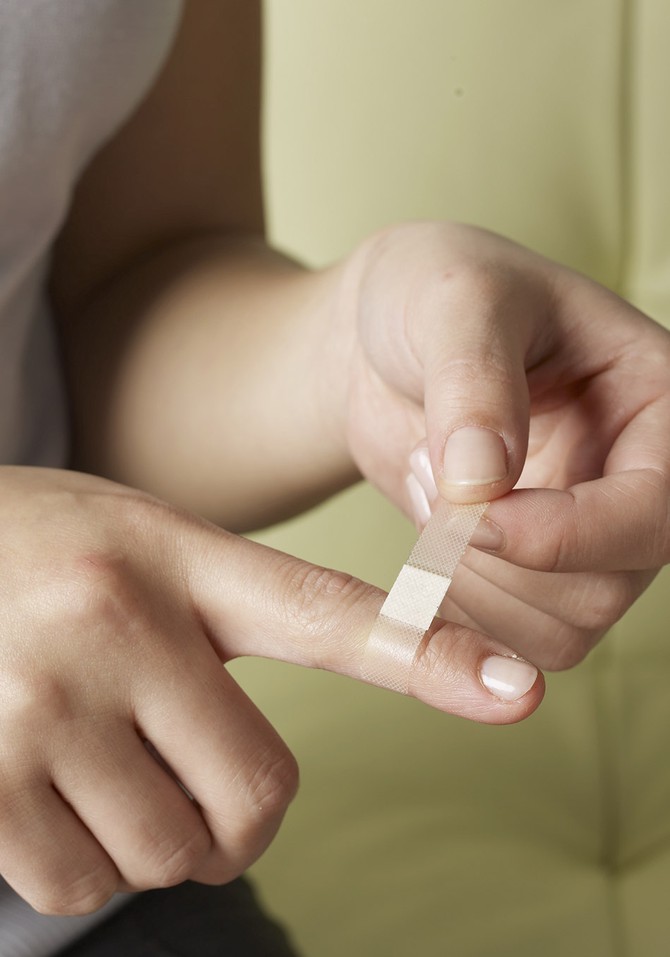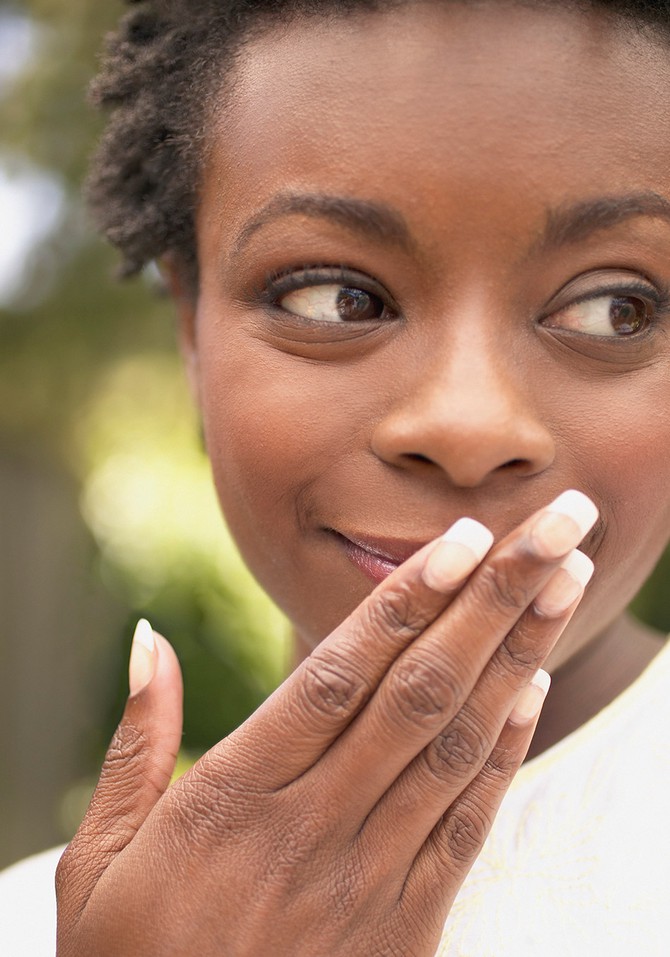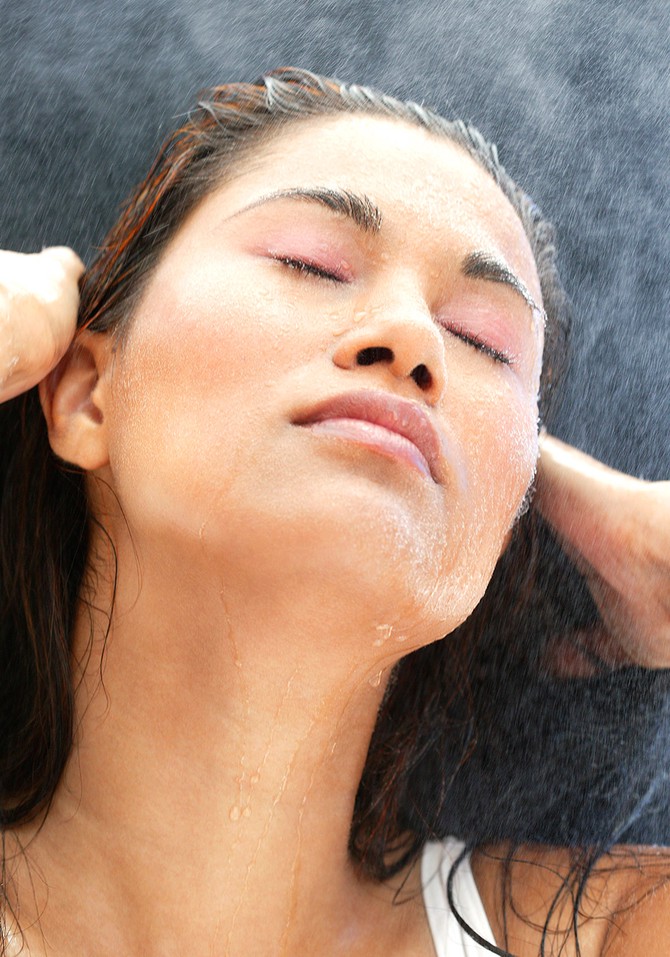8 Invisible Signs You're Totally Fried
Even though you're not obviously melting down, your burnt-out body and brain are waving the white flag.
By Corrie Pikul

Photo: TAGSTOCK1/iStock/Thinkstock
You've got a minor yet noticeable cut that just won't go away.
People keep asking you how you hurt yourself and you have to jog your memory to remember (Were you chopping carrots? Washing the vegetable peeler?). Studies have shown that psychological stress can affect the body's ability to heal itself. People who showed higher than normal levels of stress took longer to heal from skin wounds, minor surgical procedures and even blisters. There's ample evidence that stress causes a release of chemicals (like cortisol and glucocorticoids) that get in the way of the healing process at numerous key steps and can also leave the wound more vulnerable to infection.

Photo: Plush Studios/Blend Images/Thinkstock
You're constantly muttering, "Excuse me," under your breath.
For the past few weeks, you've been burping like crazy—odorless, benign-seeming little burps that come so often, you've almost stopped noticing them. You're probably just swallowing small amounts of air and immediately burping them back up again, says Robynne Chutkan, MD, a Maryland-based gastroenterologist and the author of Gutbliss. (Put your hand on the upper part of your stomach, just under your chest: It's probably stretched tight like a drum, says Chutkan). This is something people tend to do when they're stressed or anxious. It may be due to shallow breathing, an obsessive reliance on gum or mints, or excessive nervous chattering. Sometimes, the burping and apologizing can turn into an unconscious tic or coping mechanism, experts say. In those cases, the best way to make it go away is to address the underlying stress. (Time for a vacation!)

Photo: Wavebreakmedia Ltd./Thinkstock
Even a quick catnap is enough time to have wacky, vivid dreams.
But wait (you're thinking): A short doze means I'm taking care of myself—and don't doctors recommend taking a nap as a way to get a second wind? The problem here isn't with the siesta; it's with what happens during that time period. It usually takes about 90 minutes to enter REM sleep and start dreaming, says Christopher Winter, MD, the medical director of the Martha Jefferson Hospital Sleep Medicine Center in Charlottesville, Virginia. The maximum length of your nap should be around 30 minutes, because once you've hit REM, the nap becomes counterproductive (you'll wake up groggy instead of refreshed, Winter says). So if you start dreaming as soon as you close your eyes, it means your brain is so sleep-deprived that it's rushing to get into the REM phase. A scheduled nap can help make up for one late night, says Winter, not a month's worth.

Photo: Alberto Bogo/iStock/Thinkstock
You're convinced that you've got early-onset dementia—at 33.
"We often see patients who are healthy yet extremely fatigued telling us that they're starting to forget things they should remember," says Anne Marie Albano, PhD, the director of the Columbia University Clinic for Anxiety and Related Disorders. "I tell them about the shelf theory of memory: You can only put so much on the shelf at one time, and when you're exhausted, the shelf isn't supporting memories the way it should." You are focusing so intensely on the mental challenges at hand that everything else is subconsciously deemed irrelevant. This is due to the stress hormone cortisol's complicated effect on memories, explains John Ratey, MD, in his book Spark: The Evolutionary New Science of Exercise and the Brain. Excess cortisol can cause us to lose the ability to form and store new memories not related to the present situation and can also make it difficult to retrieve the memories we already have.

Photo: John Howard/Digital Vision/Thinkstock
Your jog to "burn off steam" totally deflates you.
If you're really frazzled when you start to exercise, your body reacts differently than if you aren't in such a state, explains Sarah L. Berga, MD, professor of obstetrics and gynecology at Wake Forest University School of Medicine in Winston-Salem, North Carolina. Berga and her colleagues have observed that moderately intense exercise can cause cortisol levels to spike even higher in women who are already so stressed that they've been missing their periods. At the same time, the "hyperstressed" women's glucose levels dropped, which meant there was less available energy to fuel their exertion. Berga suggests taking a break from hard workouts and signing up for a package of Pilates classes instead.

Photo: sergio_kumer/iStock/Thinkstock
You can drink coffee just before bed and still pass right out.
Some of us are more sensitive to caffeine than others, but no one is completely immune to the stimulant's effects, says Michael Breus, PhD, a clinical psychologist and the author of The Sleep Doctor's Diet Plan: Lose Weight through Better Sleep. The EEG machines that show increased brain activity post-coffee don't lie—but some people swear that caffeine doesn't affect them. What's probably happening with these caffeine denialists, says Breus, is that they're so exhausted that their levels of calm-inducing neurotransmitters are very high. These neurotransmitters help override caffeine's effects, or they set to work on a different area of the brain to kick-start the sleep process—so the caffeine is working, but the coffee drinkers aren't reacting to it. In other words, they're not superhuman; they're just super tired.

Photo: Alliance/iStock/Thinkstock
You feel like your acid reflux has gotten much worse.
Stress hasn't been shown to cause acid reflux; however, it can make it feel more intense, found a study published in the Journal of Psychosomatic Research. When patients diagnosed with acid regurgitation had to perform an anxiety-inducing task, their perception of pain was much higher than fellow acid reflux sufferers who hadn't been stressed. Tests showed no increase in the amount of esophageal acid but did reveal elevated levels of cortisol.

Photo: Goodshoot/Thinkstock
Your scalp feels weirdly sensitive when you shampoo your hair.
Stress often leads to the release of neuropeptides and other natural chemicals in the skin, and that causes inflammation, explains Richard Fried, MD, PhD, a clinical psychologist and dermatologist with a private practice in Yardley, Pennsylvania. In some people, that inflammation erupts in angry pimples or a flare-up of rosacea. In others, the neuropeptides, which are part of our innate immune response, can cause blood vessels to constrict, making skin all over the face and head feel tight, tingly and overly sensitive. You've also probably been tensing your facial muscles for weeks (unconsciously bracing for a confrontation), so they're tired and slightly sore. Fried says the sensations should subside when you start to feel more relaxed.
Published 08/06/2014

